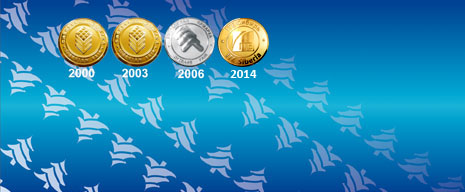 |
 |
No. 2 (2017)
Aleksander Nevsky in the Historical-cultural Standard
The article analyzes historical-cultural standard (enter into "Conception of new teaching and guiding complex on National homeland history"). As an example of "hard questions" of history of Russia, stated in the Conception, — "Historical choice of Aleksander Nevsky', — the role of source study and historiography in the organization of the unified academic extent in RF is shown.
Civic identity as a social phenomenon: historical-philosophical and philosophical and educational aspects
The article deals with the history of philosophy and the philosophical and educational aspects of civic identity, q actualized through the prism of the phenomenon of society mentality in modern Russian education — in the context [U of education-standards requirements. The author attempts to analyze the structure of civic identity, to identify the S essential components that make up the foundation of this phenomenon and concepts. Comprehend the views of philosophers of different epochs dealt with in his writings civil issues.
Philosophical Grounds of National Identity
The article deals with the philosophical and methodological foundations of national identity as a multi-level social and cultural phenomenon. Allocated national government national and ethnic and national-regional aspects. The ^ phenomenon of the "dialogue of cultures" — in the context of the mental approach, developed by the author, — is I- represented as in the socio-group and individually-personal dimensions.
Philosophy as Spirituo-Practical Activity
In social philosophy the phenomenon of philosophy is defined in terms of forms of social consciousness, spiritual activity and practico-spiritual mastering of the world. These concepts are not equivalent, as consciousness does not contain material and practical components. The spiritual activity is opposite to practice. As the practical activity is mediated by the spiritual activity (both as non-specialized and specialized), it can be more specifically defined as practico-spiritual activity.
The Influence of Philosophy as a Heuristic Method for the Formation of Economic Education
The article attempts to examine the justification of teaching philosophy as an intuitive method to students-economists in the uncertainty of current state of the domestic economy.
Keywords: economic education, economic uncertainty, a philosophy, an intuitive method, an exact science, types of thinking, qualitative and holistic analysis of the cognitive function of philosophy, a working hypothesis.
Didactic Basic Principles of Activation of Learning and Cognitive Activity of Students in the Modern Conditions
The article considers approaches, which activate learning and cognitive activity of higher educational institution students, system of didactic tools oriented to cogitative method mastery, mental activity activation.
The Role of Propaedeutic Course in the Students Adaptation to the High Educational Institution Atmosphere
The article examines some problems of the adaptation of first-year students to the university environment. The difficulties of mastering of subjects of natural-scientific directions are marked. The article suggests one of possible solutions of this problem — the organization of propaedeutic course "Physical bases of technical mechanics" for students of faculty of technology and entrepreneurship.
Behavioral Culture and Value-semantic Competence of the Teacher
The article examines the term "education" in the aspect of growing values of students. Special attention is paid to normative component of this issue, requirements and techniques of formation of axiological skills and age- psychological common factors and special aspects of this process development. Strong attention is paid to the cooperation between behavioral culture of a teacher and child-rearing practices.
Supervision as Support of Young Teacher Professional Development a t School
Multimedia Visibility in Teaching Physics
We analyze the content of the concept of visibility in the widespread use of multimedia learning tools. Regulations formulated for the use of computer models as a means of visibility in physics learning. 1. In the presentation of the educational material is maintain logic movement of knowledge from the phenomenon to the essence. For the stages "ascent to the abstract" and the "ascent to the specific" correspond to different models or different elements of the same models that are displayed in the proper sequence. 2.
Сайт поддерживается в Новосибирском институте повышения квалификации и переподготовки работников образования и является участником Новосибирской открытой образовательной сети